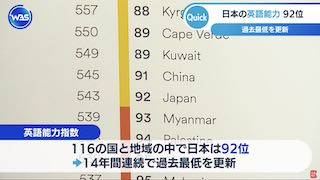TOKYO, Apr 13 (News On Japan) - In a significant shift in Japan's family law, the amendment to enable joint custody after divorce has swiftly passed through the House of Representatives' Judicial Committee.
While the bill has moved forward quickly, its reception among the public and experts has been mixed. Some express skepticism about the practical implementation of joint custody, fearing it could lead to increased disputes and complexity in co-parenting arrangements.
Toshiko Shibayama, a member of the Liberal Democratic Party, previously advocated on social media for urgent reform following a controversy over a Saitama prefecture ordinance. Shibayama's push highlights the government's drive to quickly establish laws reflective of changing societal norms.
Under the current law, post-divorce custody is typically granted to one parent. The new amendment, however, will allow both parents to opt for joint custody. Despite this option, concerns remain that contentious relationships between former spouses could complicate decision-making processes, from educational choices to relocation.
Critics argue that divorced individuals often part ways due to significant grievances, questioning the feasibility of maintaining effective joint custody. The potential increase in logistical coordination and psychological stress is a concern, especially if former partners are required to consult each other frequently.
The focus of the debate is whether the legislation truly serves the best interests of the children involved. Proponents argue that joint custody should prioritize children's needs over parental control, ensuring their stability and security.
However, some fear that without clear consensus or effective mediation, families might end up more fragmented. Discussions in the legislature continue, with the government aiming to enact the bill during the current session, prioritizing children's welfare as the core consideration.
Under the new law, if both parents retain custody, both incomes will be considered for financial aid determinations, potentially making it harder for children in these families to qualify.
Deputy Minister of Education, Abe, explained that parental income would determine eligibility for educational grants. If parents opt for joint custody, both incomes would be considered, potentially increasing the financial burden on the household.
The Communist Party, which opposed the bill, argued that the new law could complicate financial assessments for child support, particularly in high-conflict divorces where parents do not communicate effectively. They expressed concerns that the increased financial and administrative burdens could disproportionately affect single-parent households.
Abe noted that each case would require individual assessment to ensure that children's educational costs are minimized. The aim is to coordinate closely with the Ministry of Justice to ensure proper administration of these cases.
While child support payments alone will not determine custody outcomes, prolonged non-payment might significantly influence decisions against granting joint custody. The bill, now slated for enactment in the current session of the Diet, has sparked significant debate about its potential impact on children and families across Japan.
Source: ANN















